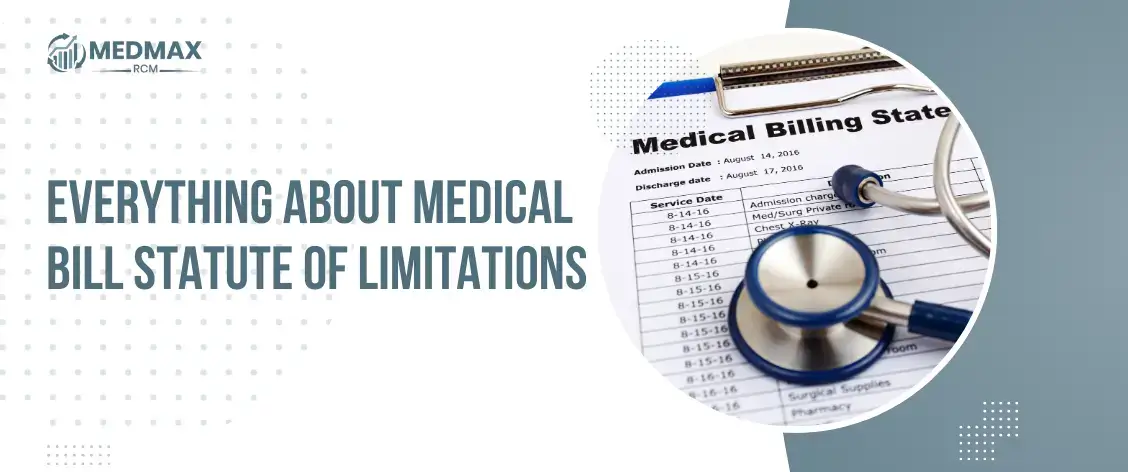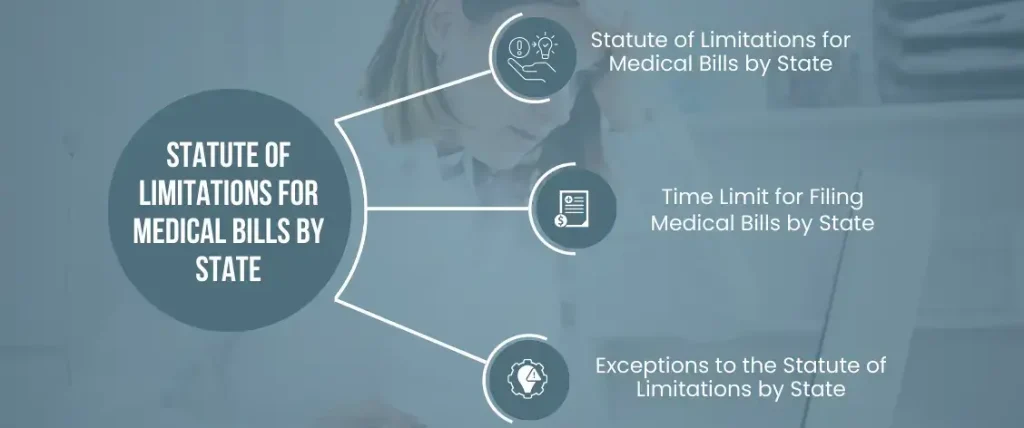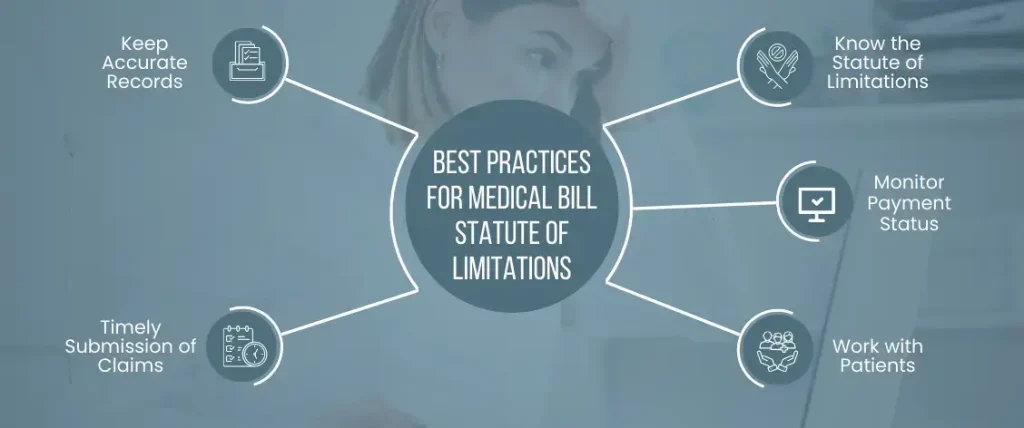
Everything About Medical Bill Statute of Limitations
Table of Contents
ToggleMedical Bill Statute of Limitations
Medical Bill Statute of Limitations Overview
Importance of Statute of Limitations in Medical Billing
Understanding the statute of limitations for medical billing is crucial to ensure that healthcare providers receive appropriate payment for services rendered. If a healthcare provider misses the deadline to file a claim, it can result in a loss of revenue for the provider and can also impact the patient’s credit score and financial standing. It is, therefore, important for healthcare providers and credentialing to be aware of the statute of limitations and to file claims within the specified time frame.
Statute of Limitations for Medical Bills by State
Statute of Limitations for Medical Bills by State
The statute of limitations for medical bills can vary by state and can range from one to six years. For example, in California, the statute of limitations for medical bills is one year, while in New York, it is six years. It is important for healthcare providers to be aware of the statute of limitations in their state and for the services they provide.
Time Limit for Filing Medical Bills by State
The time limit for filing medical bills also varies by state and can range from 30 days to several years. For example, in California, the time limit for filing a medical bill is one year from the date of service, while in New York, it is three years from the date of service. Healthcare providers should be aware of the time limit for filing medical bills in their state to ensure timely filing.
Exceptions to the Statute of Limitations by State
Some states have exceptions to the statute of limitations for medical bills. For example, in California, the statute of limitations can be extended if the patient was not aware of the injury or illness at the time of the service, or if the healthcare provider committed fraud. It is important for healthcare providers to be aware of the exceptions in their state.
Common Medical Billing Issues and Their Statute of Limitations
Insurance Coverage Issues
Insurance coverage issues, such as denials or delayed payments, can impact the time frame for submitting a claim. The statute of limitations may be extended in cases where the insurance company has not provided a timely response or has denied the claim.
Billing Errors
Billing errors can impact the submission of claims and may require additional time for correction. Providers may need to request an extension of the statute of limitations in order to correct billing errors.
Denied Claims
Steps to Take When Dealing with Expired Statute of Limitations
Negotiating Payment Plans
When the statute of limitations has expired, healthcare providers may need to negotiate payment plans with the patient or pursue other options such as debt collection agencies or legal action. Negotiating a payment plan can be an effective way to resolve the issue without resorting to legal action.
Working with Collection Agencies
Healthcare providers can work with collection agencies to recover unpaid bills. Collection agencies can help to recover outstanding debts and can provide healthcare providers with options for resolving the issue.
Legal Action
Healthcare providers can take legal action to recover unpaid bills when the statute of limitations has expired. However, legal action can be costly and time-consuming, and should only be pursued after all other options have been exhausted.
Best Practices for Medical Bill Statute of Limitations
Keep Accurate Records
Healthcare providers should keep accurate records of all services provided and billings submitted. This can help to ensure that claims are submitted within the statute of limitations and can also help to resolve any issues that may arise.
Know the Statute of Limitations
Healthcare providers should be aware of the statute of limitations in their state and for the services they provide. This can help to ensure that claims are submitted in a timely manner and can help to prevent issues related to expired statutes of limitations.
Timely Submission of Claims
Healthcare providers should submit claims in a timely manner, and within the time frame specified by the statute of limitations. This can help to ensure that claims are processed and paid in a timely manner, and can help to prevent issues related to expired statute of limitations.
Monitor Payment Status
Healthcare providers should monitor the status of payments and should follow up on any unpaid bills. This can help to ensure that bills are paid within the statute of limitations and can help to prevent issues related to expired statutes of limitations.
Work with Patients
Healthcare providers should work with patients to resolve any issues related to unpaid bills. This can include negotiating payment plans, RCM, offering discounts, or providing financial assistance. By working with patients, healthcare providers can help to resolve issues related to unpaid bills and can prevent issues related to expired statutes of limitations.

Related Posts
Williams Clark
Williams Clark is a dual-certified healthcare professional with CPC and CHC credentials. With over a decade of experience in medical billing and compliance auditing, David provides deep insights into payer policies, denial prevention, and accurate coding practices. His mission is to empower medical billers and healthcare providers with the knowledge to stay compliant and profitable.








